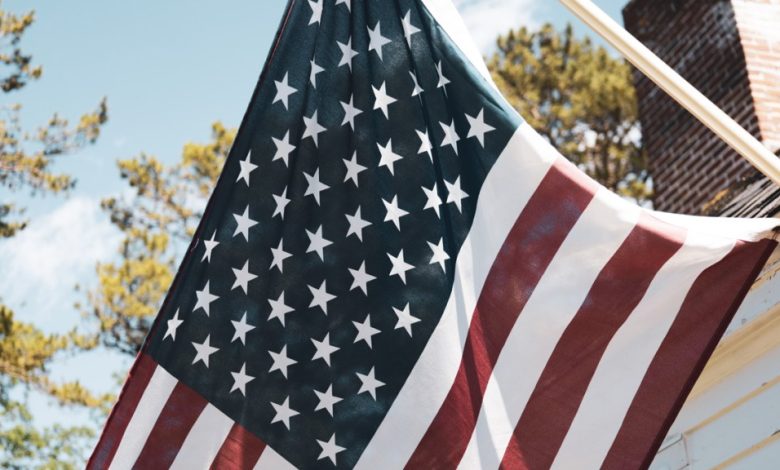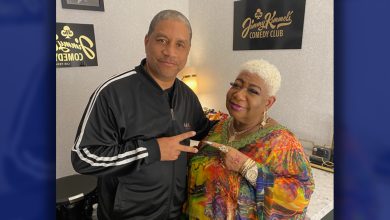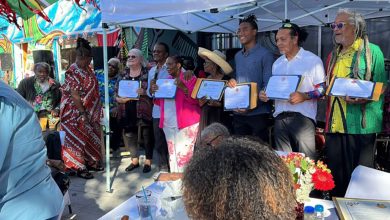The Unapologetic Assault on Black History in America


Will you sit back and allow it to happen?
Are you proud to be Black?
I mean really, are you proud to be Black?
Well, Black History Month is being celebrated during the month of February, and it is a big deal.
Black history is American history, and Black History Month is significantly important this year, considering the attack on Black history we are witnessing legislatively here in Texas and across the country. There has been an all-out assault on Black history in America, coupled with a concerted effort to eliminate teachings in schools surrounding all aspects of Black history in this country—which includes the good, the bad, and the ugly parts of Black history.
Back in 2021, Texas Governor Greg Abbott signed a bill into law that significantly restricts the way the overall history of Black people in this country can now be taught in Texas schools. The buzz phrase that has commonly been used to describe the type of teaching that led to the bill’s eventual introduction, passage, and signing is referred to as “Critical Race Theory”.
In Florida, there have been many arguments, protests, and even lawsuits surrounding Governor Ron DeSantis’ push to eradicate the teaching of all aspects of Black history in public schools. He also signed the “Stop Woke Act” into law last year, which also uses the buzz phrase “Critical Race Theory” as the basis for the need for the legislation.
At the end of the day, these legislative actions, and this perceived overreach of power, has been viewed as an assault on the authenticity and totality of the Black experience in America, which is why Black History Month in 2023 is as important today than it ever has been.
Black History Month is a time where the contributions of Black people should be heralded.
Black History Month is a time where the achievements of Black people should be taught in classrooms, and where robust discussions should be held on a continuous basis surrounding the impact and influence Black people have had on this country.
Black History Month is a time where the history-making stories about Black people should be celebrated in the very same way the founding fathers are heralded, revered, and celebrated.
The history of Black Americans should be acknowledged, highlighted, and celebrated in this country every day—24 hours a day; 7 days a week; 365 days a year. It should never cease.
The importance of Black history should not be minimized, and definitely should not be limited to the shortest month of the calendar year. There is no conspiracy theory behind the month of February being the chosen month that Black History Month is celebrated, if we know our history. As a matter of fact, that, in itself, is a part of the overall Black experience in America that all Americans should learn and embrace as part of American history.
The foundational roots of Black History Month originate with famed historian and author Carter G. Woodson, who pioneered the celebration of “Negro History Week” in February 1926.
Woodson originally designated “Negro History Week” to be held during the second week in February, before extending it to a full Black History Month celebration after “Negro History Week” became widely popular and accepted. He chose that week to coincide with the birthdays of two historical American icons who are played a major role in advocating for the freedom and equality of Black people—one was President Abraham Lincoln, who was the 16th president and who issued the Emancipation Proclamation; and the other was Frederick Douglass, one of the most prominent 19th century Black abolitionists, authors, orators, and civil rights trailblazers of all time.
Everyone should know who Frederick Douglass is, as he has a significant place in Black history and played a major role in ensuring we moved from enslavement to empowerment. All Americans should understand his significance and take heed to some of his most profound words when it comes to demanding justice and equality for Black people in this country, as he stated:
“Power concedes nothing without a demand. It never did and it never will.”
Douglass was born a slave in the early 1800s and escaped from the bondage of slavery at the age of 20, where he went on to become a world-renowned anti-slavery activist. He also founded and served as the editor of one of the first Black and most influential antislavery newspapers in the country called The North Star, on December 3, 1847. His views and writings brought about change during one of most challenging times for Black people in this country’s history.
Today, here in America, we could learn a lot from reading the thousands of speeches and editorials Douglass wrote and discover a man who was not afraid to speak out against slavery, inequality, and racism—without fear or favor. He understood the importance of proactively addressing the issues of slavery, inequality, and racism in this country, while refusing to remain silent and allowing those issues to get swept under the rug and ignored.
Douglass said: “I expose slavery in this country, because to expose it is to kill it. Slavery is one of those monsters of darkness to whom the light of truth is death.”
Douglass was consistent with his messaging and always sought to give hope to his people, while railing against the politics of slavery that negatively impacted his people—Black people. He wanted Black people to know that accepting a role as enslaved human beings in this country was intolerable and that Black people should change the paradigm and views they had of themselves.
Douglass stated: “I didn’t know I was a slave until I found out I couldn’t do the things I wanted. We had talked long enough; we were now ready to move; if not now, we never should be; and if we did not intend to move now, we had as well fold our arms, sit down, and acknowledge ourselves fit only to be slaves.”
The work Douglass did as a reformer was impeccable, as he was bold and unapologetic as an abolitionist in the early 1840s, and as a civil rights activist who lodged stinging attacks against racial discrimination and lynching in the 1890s.
During this Black History Month, Black people are still being murdered, still being enslaved through mass incarceration, and still being disenfranchised, but as Douglass did, the only way to bring about change is by refusing to accept this as the norm. Douglass was not afraid to speak truth to power and challenging Black people to go against the system, stating: “Find out just what any people will quietly submit to and you have the exact measure of the injustice and wrong which will be imposed on them. If there is no struggle, there is no progress. Those who profess to favor freedom, and deprecate agitation, are men who want crops without plowing up the ground, they want rain without thunder and lightning. Where justice is denied, where poverty is enforced, where ignorance prevails, and where any one class is made to feel that society is an organized conspiracy to oppress, rob and degrade them, neither persons nor property will be safe.”
Again, Frederick Douglass should challenge all Americans to act differently and most importantly—think differently.
Americans must demand that Black history be highlighted in all the standard textbooks being distributed to students in schools, colleges, and universities across this country.
While most Americans may know who Dr. Martin Luther King Jr., Harriet Tubman, Rosa Parks, and a few other highlighted Black historical figures are, most other Black contributors to American society are sparingly mentioned in educational institutions and standard textbooks.
There are so many Black Americans who have made major contributions to American society, who far supersede the praise that Christopher Columbus receives for allegedly locating a land that was already inhabited by people.
As Americans, Black history should be deemed important enough to dedicate a large portion of time, energy, and resources towards learning it and teaching it, in the same way that Carter G. Woodson chose to make Black history a priority.
Woodson devoted most of his life to historical research and towards working to preserve the history of Black people in this country. He accumulated a massive collection of thousands of artifacts and publications, primarily because he felt the contributions of Black people in this country were being overlooked, ignored, and suppressed by the writers of history textbooks, and the teachers who use them. According to Woodson, “race prejudice is merely the logical result of tradition, the inevitable outcome of thorough instruction to the effect that the Negro has never contributed anything to the progress of mankind.”
Black Americans should be embraced and exalted to the highest level of significance all year-round—not just during the month of February. If there is truly a desire to acknowledge Black history this month, everyone, regardless of race, is encouraged to do the following if possible:
- Volunteer to participate in a Black History Month program, preferably as a speaker
- Invest in books with Black history content that your children can read at home
- Volunteer to read at least one book on Black history to the youth at a school, church, library, community organization, or college/university in your respective community
- Find the closest Black history museums or sites in or near your respective city and go visit with a family member, friend, or group
- Make plans to visit the new Smithsonian’s National Museum of African American History and Culture in Washington D.C. before the end of the year
- Join and/or financially contribute to community organizations who have a dedicated focus and emphasis on teaching Black history education
- Write a letter to your local school board, county, state, and federal elected officials demanding that there be an increase in the amount of Black history information being included in and taught from textbooks in every school, college, and university
- Proactively research and further your own Black history education by reading books and/or seeking out information via the internet
Listen…Black history should be a year-long tribute that will make an educational impact in the lives of Black youth and in the lives of every American citizen, for years to come.
The post The Unapologetic Assault on Black History in America appeared first on Houston Forward Times.




